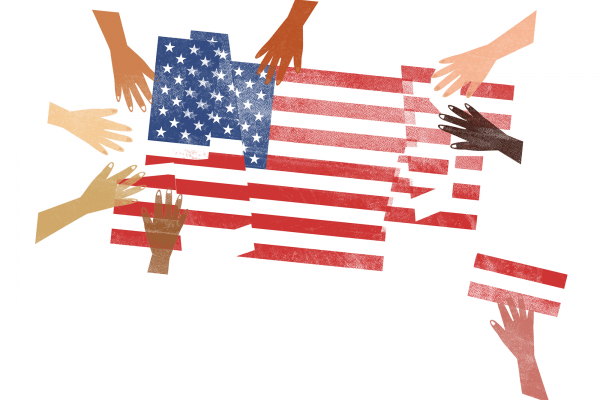AS WE APPROACH Independence Day, I’m anxious the holiday will be overshadowed by the pitched battles waged around what we teach about our nation’s history, continued assaults on our democracy, and the struggle over how we understand and express patriotism. In the face of these trends and the alarming prominence of white Christian nationalism, it is imperative that we resist destructive forms of patriotism that bleed into nationalism. Instead, we should embrace a redemptive patriotism that celebrates the noble promises the country was built upon, even while we acknowledge and repent for the ways the country has fallen so short of living up to those ideals and extending them to everyone. Nationalism is often rooted in a revisionist and censored telling of history and fueled by a hatred and fear of the “other.” In contrast, a healthy patriotism must always be tied to the project of building a more just and inclusive America. By rededicating ourselves to this cause, the Fourth of July can serve as a day that fosters greater unity and advances shared ideals, rather than one that reinforces our divisions.
Frederick Douglass and the biblical prophet Isaiah lend us seemingly timeless tools to resolve this conundrum. In 1852, nearly a decade before the Civil War, Douglass, formerly enslaved until his escape, was asked to address the citizens of his hometown of Rochester, N.Y., on the nation’s 76th anniversary. This famous speech—“What to the Slave Is the Fourth of July?”—should be required reading for every American.
Read the Full Article

